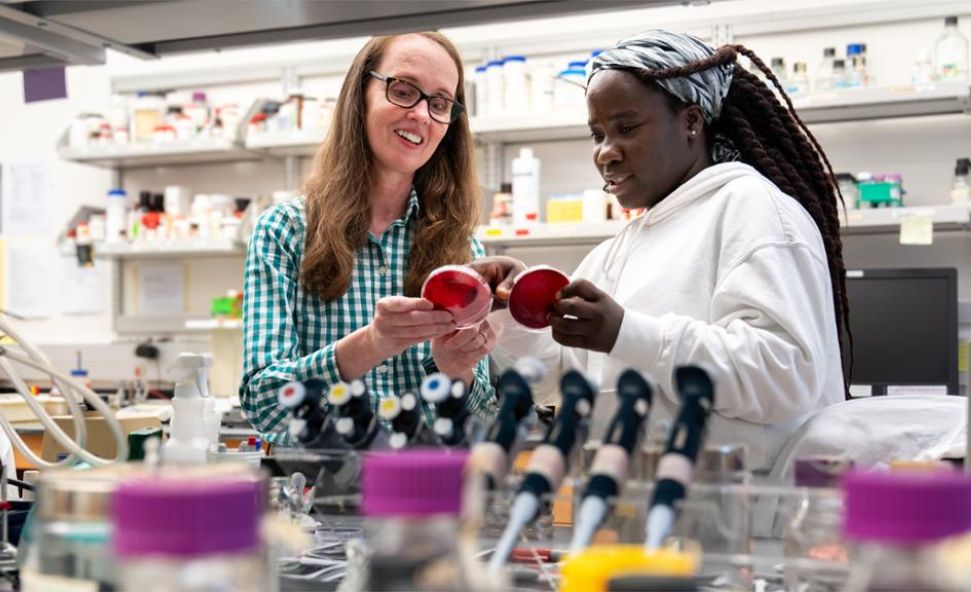
Blog
News | 3 min read
January 16, 2025

Projects focusing on climate change, disease control, and AI recently received funding.
Biology professor Laura Runyen-Janecky is counted among the faculty members recently receiving grant funding from prestigious national organizations. Altogether, the cumulative amount of projects financed this year by grants exceed $2 million for University of Richmond faculty to pursue research across various disciplines, including climate change, disease control, and artificial intelligence.
Runyen-Janecky received more than $400,000 from the National Institutes of Health to support her research on tsetse flies and the diseases they carry, including Human African trypanosomiasis, also known as sleeping sickness. The research will focus on Sodalis glossinidius, a bacteria found in the tsetse fly gut, and its potential role in transmitting trypanosomes, the parasites responsible for the deadly disease.
“Tsetse flies are vectors for a disease that affects millions of people and animals in sub-Saharan Africa each year,” said Runyen-Janecky.
Her research aims to better understand how the bacteria survive in the blood-rich environment of the tsetse fly gut and how their presence might impact the fly’s ability to carry and transmit disease. The findings could inform strategies to reduce the transmission of sleeping sickness, which can be fatal.
Runyen-Janecky’s research also provides an opportunity for hands-on learning since undergraduate students at UR can participate in the project.
“This is a great example of how NIH funding can advance both scientific discovery and student involvement in meaningful research,” she said.
Another major grant came from the National Endowment for the Humanities, which awarded the University of Richmond $700,000 to establish a new Center for Liberal Arts and AI. The center, which will open in the fall of 2025, will foster interdisciplinary research on artificial intelligence, focusing on the social, cultural, and legal implications of AI technology. Lauren Tilton, a UR professor of digital humanities, will direct the center, bringing together scholars, students, and educators from 15 colleges across the Associated Colleges of the South.
Other notable grants include:
These grants reflect the university’s broad academic engagement and its ongoing commitment to addressing global challenges, from health and climate change to education and technology.